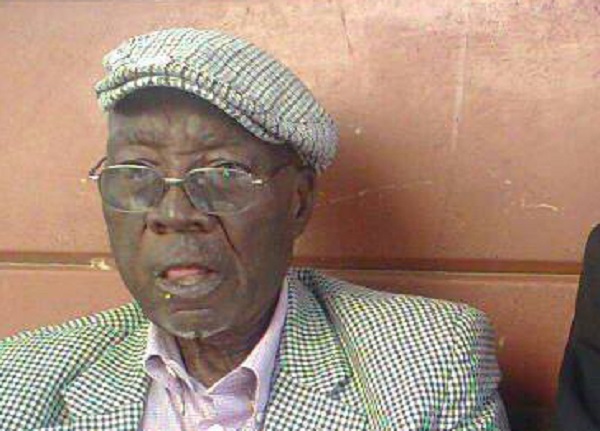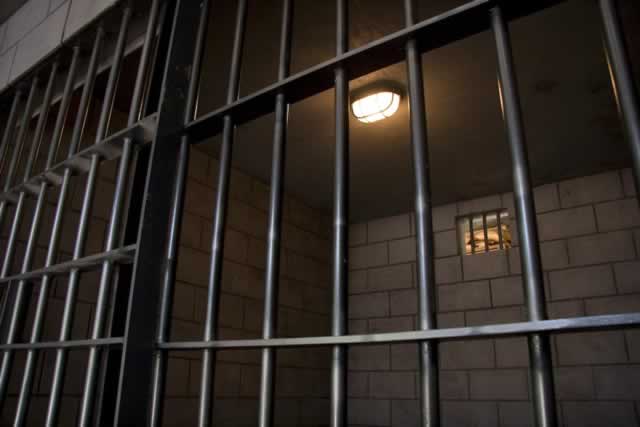J Temba: Memories of our father

The year that we have dumped in the dust bin, for lack of a more appropriate expression, was the worst.
Admittedly, I could pick on several positives, which I will share, but overall, 2016 was classic Annus Horribilis.
I will not claim to speak for everyone, because there are those sadists who revel in the suffering of others. But topping the list was the number of people close to me who passed on. First was the sudden death of our mother-in-law MaSibanda. The most significant event was the passing of my father, Jonathan Temba Mhlanga. I have been avoiding writing about that sad episode of my life. Perhaps it was so because I had not really accepted it in my soul. That is what happens when you lose someone so close.
My father was a phenomenal person. I think God planted him on this earth to make a huge difference in people’s lives. Everything that he put his energy into, it touched people in incredible ways. Be it his original profession as a salesman, business, sport and recreation.
As a salesman in the 1960s and 1970s, he influenced the buying decisions of Bulawayo’s black middle class. That is how far our people would go up the social ladder, many of them teachers, nurses and other civil servants.
My father told me that he went into salesmanship and business by accident. Otherwise he would have become a lawyer or an educationist, had my grandfather not fallen ill in South Africa. He counted the late Sikhanyiso Duke Ndlovu and Advocate SK Sibanda as his friends. Mhlanga played the role of ‘idombo’ for the late Sikhanyiso when he dated Rose in the Eastern Cape.
He managed Mackays, a Jewish business that sold furniture and electronic goods in the centre of Bulawayo. He was the first black to do so. He sold the status symbols of the time to the likes of the late Vice Presidents Joshua Mqabuko Nkomo and John Landa Nkomo along with the late Sydney Malunga among many others. They were trade unionists and politicians of note.
Yet a hidden aspect of those friendships was the fact that the Zimbabwe African Peoples Union (Zapu) and the National Democratic Party leadership used to meet in my father’s office, right under the noses of the white authorities in the city centre. That was his contribution to politics which he keenly followed, yet hated with a passion.
Growing up in Langa, Cape Town, gave him a sophistication that was rare at the time. He dressed to the nines, something that rubbed off on me. The difference was that he wanted to share what he had learnt and exposed to and strived to improve the standard of living of his peers.
He was exposed to trade unionism in South Africa in the 1950s and like everyone else over there, was a member of the African National Congress.
So it was natural for him to come to the aid of the nascent political movement in the then Rhodesia that was under constant siege. They had to find creative ways of meeting and mobilising members in the 1960s.
Judging by his involvement and subsequent foray into business, my father was appointed into what was called the African Advisory Board, a body that gave blacks a measure of autonomy in deciding the direction of development in Bulawayo’s townships. It was the brainchild of one Hugh Ashton, the director of housing and amenities.
Mhlanga and the likes of Nicholas Mabodoko, Thandabantu Moyo, Nhliziyo and others became pioneers in an initiative by the all-white Bulawayo City Council for self-administration, something that the then ruling Rhodesia Front frowned upon. It formed the basis of subsequent incorporation of black councillors into the council in 1980.
The Advisory Board became an avenue for my father who was keen in securing ownership of the properties he had begun acquiring. The oppressive government restricted ownership by Africans to 99 year leases. He opted to rent retail premises from the council at Tshabalala (Tshabalala Fish and Chips) and the first J Temba shop koThikili in Mpopoma.
These businesses, along with Tee Vee Record shop along Jameson Street (Herbert Chitepo Street) and 4th Avenue and Maboleni Bottle Store in Lower Gweru were to be incorporated when J Temba Supermarket and Butchery in Gwabalanda was constructed in 1977. This fulfilled his dream of finally owning the building where his businesses were.
The rigours of running a business saw the necessity for him to resign from his salesman job and run his businesses full time. That was along with supporting his favourite football team, Highlanders as benefactor and club official. He continued to support his beloved ZAPU through providing supplies to ZIPRA during the struggle.
It was not surprising therefore that in 1979, J Temba played a critical logistical role of receiving the ZAPU leadership and refugees when they came from Zambia. The shop in Gwabalanda became a meeting place for the liberators, where they were feted and entertained.
That hospitality would later be extended to the ANC where the likes of Thabo Mbeki, Chris Hani, Joe Modise and others would come an enjoy inhloko lezangaphakathi ko J Temba before South Africa’s independence.
My father was known to many people for many things. He assisted so many, but in all that he remained humble.
Sometime back before succumbing to partial blindness, I asked his permission to approach city authorities for them to grant him civic honours for his role in uplifting Bulawayo in business, sport and the social side of things. His answer was brief and to the point, “If they don’t see the need to grant me honours abafana laba, then sibancengelani?”
He would then say, at least ‘umfanami uCont Mhlanga bamgcoba’ (granted civic honours.) It was a ceremony he attended with pride at my invitation when I served as senior public relations officer of the City of Bulawayo.
Mhlanga never sought accolades, pushing others ahead of him. He mentored a lot of the businessmen who followed his lead in the 1970’s. And never spared his bitterness towards his political friends for reasons I will not share here.
If you were to ask me and many others, my father J Temba rightfully deserves civic honours, even when he is gone. His legacy is there for all to see. Lala ngokuthula Gasa omuhle.











Comments